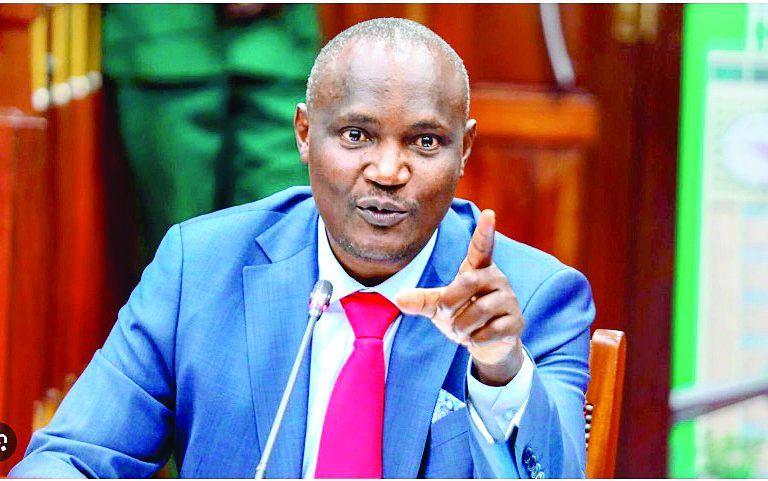State of failed services as Kenyans face suffering

Kenyans are voicing their growing disillusionment with the Kenya Kwanza administration as vital public services rumble on the brink of collapse, crippled by underfunding, corruption, and what critics are calling a premature shift to campaign mode ahead of the 2027 General Elections.
At the centre of the storm is the failing higher education funding model, widespread insecurity, a struggling healthcare sector and alarming cases of extrajudicial killings. All unfolding amid a dire economic climate marked by cash-starved schools, unpaid suppliers, and disillusioned civil servants.
Higher Education Principal Secretary Beatrice Inyangala, appearing before the Senate Education Committee in March, admitted the new university funding model had run into serious turbulence. The scheme, launched with the intention of aligning support with students’ financial needs, has suffered from inadequate funding, inaccurate data, and corruption allegations.
“In our survey, we found that 53 per cent of students left their vulnerability assessment forms to be filled by cyber café staff,” said Inyangala. This compromised the integrity of the data used to place them in funding bands.”
The PS revealed that assumptions made by the ministry, such as the belief that students who attended national schools will automatically afford university fees failed to reflect the reality on the ground, with many such learners relying on bursaries.
National Treasury Cabinet Secretary John Mbadi has also warned that parents will, from next year, start shouldering the burden of examination fees when the scrapping of the decade-long exam waiver takes effect.
The removal of the remission will pile financial pressure on households already grappling with school fees and the high cost of living, come next year.
Mbadi justified the policy shift, saying the examination subsidy has become unsustainable due to rising costs of competing priorities in the education sector amid budget deficits. “We have to review the cost in the sense that why we should pay for examinations for all students, including those in private schools? We should be subsidising examinations for those who cannot afford it, especially in public schools,” Mbadi said during an interview with a local TV.
He, however, assured parents, guardians, and learners that despite there being no allocation of an exam waiver in the 2025-26 budget estimates, plans had already been made to ensure all candidates sit exams at no cost.
Kakamega Senator Bonny Khalwale slammed President William Ruto over the decision to scrap off Sh5 billion national exam fee waiver.
Addressing a section of residents in Lurambi Constituency in Kakamega County on Saturday, the senator dismissed the decision, lamenting that several students from poor families will be forced to drop out of school.
The Ministry of Health has also raised the alarm over the fragile state of healthcare financing, with the new Social Health Insurance Fund (SHIF) registering a dismal contribution rate. Out of 19.4 million Kenyans registered, only 3.3 million are actively paying into the scheme.
“Health services are expensive, and the burden cannot rest solely on those in formal employment. Non-contribution is causing disruptions, and services are already affected,” said Director General of Health Dr Patrick Amoth.
Enforced disappearances
The ministry echoed the concerns, urging Kenyans to complete their means testing and generate premiums to ensure continued access to medical care. However, county registration remains low, particularly in arid and semi-arid areas.
Lack of security remains another pressing concern. While President William Ruto recently claimed that victims of enforced disappearances had been reunited with their families, the National Cohesion and Integration Commission (NCIC) disagrees.
NCIC Chair Reverend Dr Samuel Kobia called for a multi-sectoral probe into cases of extrajudicial killings and disappearances, highlighting the need for restorative justice and accountability within security agencies. “Between 2019 and 2024, over 970 Kenyans have been victims of enforced disappearances or extrajudicial killings. Impunity must not be allowed to flourish,” said Kobia.
Political analysts, including Professor Frank Matanga of Masinde Muliro University, warn that the Kenya Kwanza government faces a difficult balancing act between financing public development and securing political support.
“The economic empowerment campaigns targeting boda boda riders and ‘Mama Mbogas’ are politically strategic. But they are being bankrolled while essential services like education and health are underfunded,” Matanga noted, adding that with Central Kenya no longer a guaranteed voting bloc following Gachagua’s ouster, the ruling coalition is scrambling to reassure the electorate through economic tokens.
Meanwhile, Kenya’s agricultural sector the backbone of the rural economy continues to suffer from policy inertia, poor subsidies, and inadequate investment. Youths hoping to tap into agribusiness and innovation are left stranded due to a lack of access to credit, market structures, and technology.
Despite lofty promises to empower young people, especially in agriculture and the creative sector, little tangible support has been provided. Musicians and artists are instead being co-opted to endorse the government’s narrative, critics say.
As the cracks in government service delivery widen, Kenyans are increasingly sceptical of the administration’s priorities. While officials struggle to reassure citizens of reforms, frustrations grow over unmet promises and the looming spectre of electioneering taking precedence over governance.
Experts caution that unless urgent steps are taken to reinvest in critical sectors, restore public confidence and uphold the rule of law, the country could face deeper instability. “The elephant is dying. But before we bury it, Kenyans must pluck its tusks. The truth, like history, cannot be buried,” Gachagua warned.
The former deputy president has emerged as one of the most vocal critics of the current regime’s handling of the economy.
The rising extra judicial killings, terrorism, banditry and insecurity that has left two Catholic priests dead in two weeks, have also painted to growing safety threats facing Kenyans. Things have been worsened by the rising road accidents in the country that have claimed tens of lives in the past one month.















